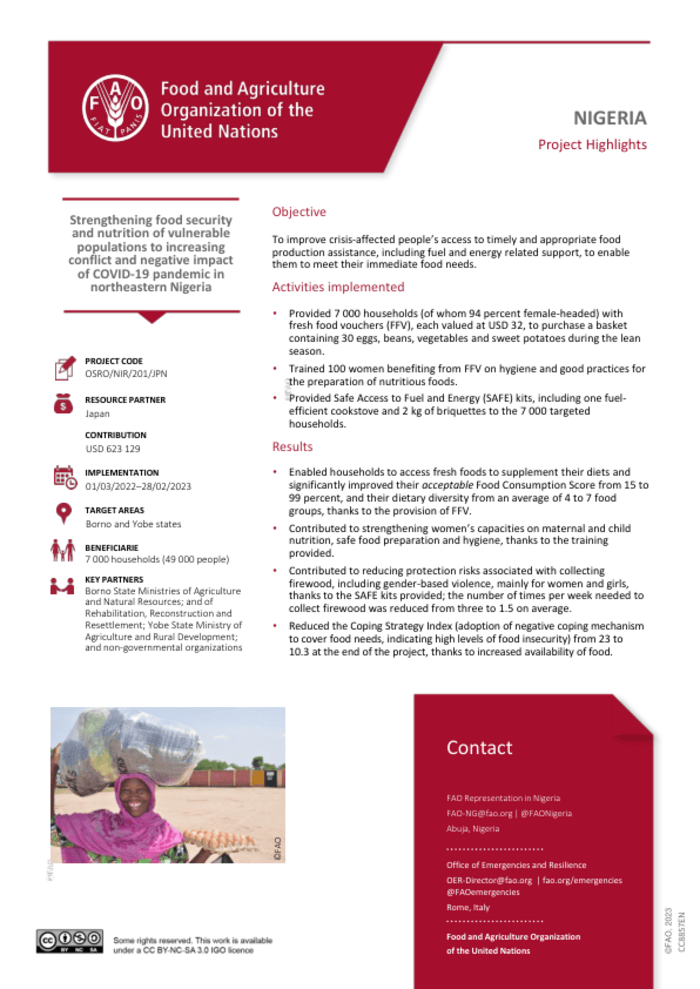
Objective
To improve crisis-affected people’s access to timely and appropriate food production assistance, including fuel and energy related support, to enable them to meet their immediate food needs.
Activities implemented
• Provided 7 000 households (of whom 94 percent female-headed) with fresh food vouchers (FFV),each valued at USD32, to purchase a basket containing 30 eggs, beans, vegetables and sweet potatoes during the lean season.
• Trained 100 women benefiting from FFV on hygiene and good practices for the preparation of nutritious foods.
• Provided Safe Access to Fuel and Energy (SAFE) kits, including one fuel efficient cookstove and 2 kg of briquettes to the 7 000 targeted households.
Results
• Enabled households to access fresh foods to supplement their dietsand significantlyimproved their acceptableFood Consumption Score from 15 to 99percent, and their dietary diversity from an average of 4 to 7 food groups, thanks to the provision of FFV.
• Contributed to strengthening women’s capacities on maternal and child nutrition, safe food preparation and hygiene, thanks to the training provided.
• Contributed to reducing protection risks associated with collecting firewood, including gender-based violence, mainly for women and girls, thanks to the SAFE kits provided; the number of times per week needed to collect firewood was reduced from three to 1.5 on average.
• Reduced the Coping Strategy Index (adoption of negative coping mechanism to cover food needs, indicating high levels of food insecurity) from 23 to 10.3 at the end of the project, thanks to increased availability of food.
